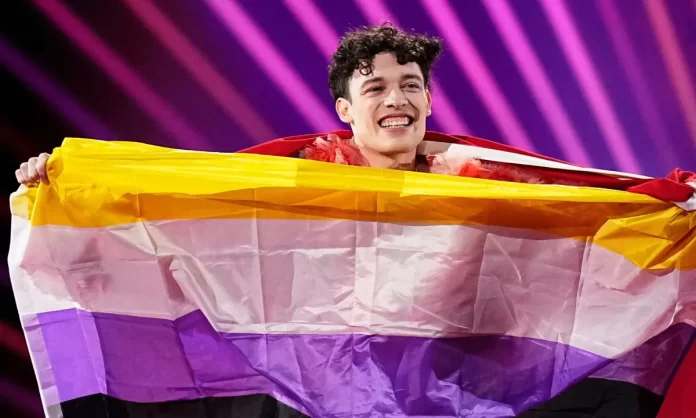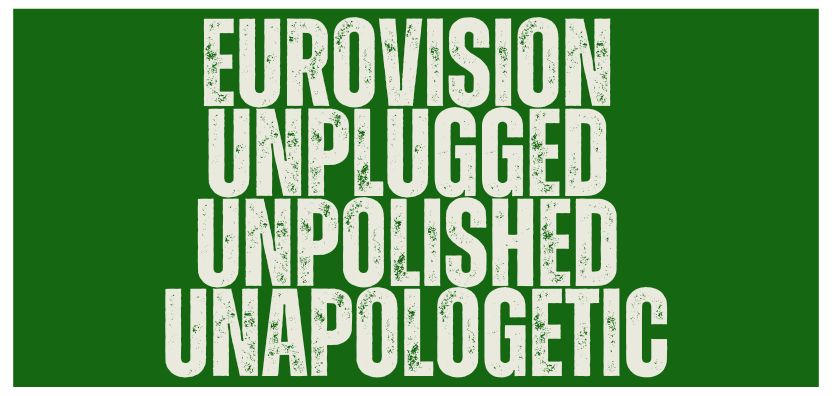
|
Getting your Trinity Audio player ready...
|
Just when you thought you’d probably heard the last of complaints from those taking part in or having anything to say for or against the 2024 Eurovision Song Contest, here comes the EBU (and others) to talk flags.
The European Broadcasting Union (EBU) implemented stricter guidelines this year. A policy aimed at maintaining what organisers persist in referring to as ‘political neutrality’. It appears to have unintentionally ignited another firestorm of criticism and debate.
Good intentions
The EBU’s decision to limit the types of flags permitted at the contest stems from a desire to create a cohesive and apolitical environment. The official stance was put in place to keep the contest focused on music rather than political statements. Organisers wanted to prevent potential discrimination or marginalisation that may arise from the display of certain flags. And simplifying the flag list made security management a whole lot easier. In theory.
Controversial confiscations
Despite well-meaning intentions, the policy saw non-binary and transgender flags were confiscated by security personnel at the Malmö Arena. The action was perceived as discriminatory. The rainbow flag, a widely recognized LGBTQ+ symbol, has been on the ‘yes list’ since the policy came into being. Fans and advocacy groups voiced their outrage, arguing that the selective enforcement of the policy undermined Eurovision’s inclusive values.
In one of the standout moments of the controversial competition, Swiss participant Nemo appeared on stage holding the non-binary flag. At a press conference after their victory, the 24-year-old singer revealed they had to “smuggle” their flag into the arena.
The EU flag issue
Another layer to the controversy was the exclusion of the European Union (EU) flag. Margaritis Schinas, a European Commission vice-president, told the Politico website that the ban was mind-blowing. He said he would seek explanations and clarifications from the EBU. Fans and representatives from EU member states argued that the EU flag represents a collective identity and shared values that align with Eurovision’s mission. The ban on the EU flag was seen by many as contradictory, given the contest’s emphasis on bringing together countries from across Europe.
The Palestine flag issue
If anyone is being completely honest, this ban was applied moire strictly than usual this year due to conflicts in Gaza. In previous years, the display of the Palestinian flag has sparked debates about political statements and freedom of expression. The EBU has struggled to balance the contest’s apolitical stance with participants’ and fans’ desire to highlight important issues. The 2024 flag policy was partly an attempt to address these ongoing challenges, but its execution revealed deeper complexities.
Calls for change
The reaction to the flag confiscations and broader issues was swift and vocal. Social media platforms were flooded with posts criticising the EBU’s policy, with hashtags and campaigns calling for more inclusive practices. Many fans argued that Eurovision, as a beacon of diversity, should allow symbols that represent different identities and communities.
Advocacy groups have demanded a comprehensive review of the flag policy, arguing for a more nuanced approach that respects the symbolic importance of flags like those representing non-binary and transgender individuals, while still aligning with Eurovision’s values of unity and celebration.
EBU’s response and future considerations
In response to the backlash, the EBU issued statements reiterating their commitment to inclusivity and explaining the intentions behind the flag restrictions. They acknowledged the concerns raised and indicated a willingness to review the policy for future contests. Engaging in dialogue with LGBTQ+ communities and advocacy groups will be crucial in developing policies that are truly inclusive and reflective of the diverse identities that Eurovision celebrates.
The lessons learned from this year’s controversy will undoubtedly shape the future of Eurovision, reaffirming its commitment to celebrating every individual’s unique identity.





